As the birthplace of modern Western civilization, sprawling Athens has enough neoclassical buildings to keep you busy for a week.
Go beyond the Parthenon, though, and you'll discover a more youthful side to the city with new art galleries, languid cafe culture and outdoor cinemas. The Athens of today offers way more than relics of antiquity and quick routes to the Greek Islands — though we wouldn’t cross those off the to-do list just yet.
Here are Athens' best experiences.
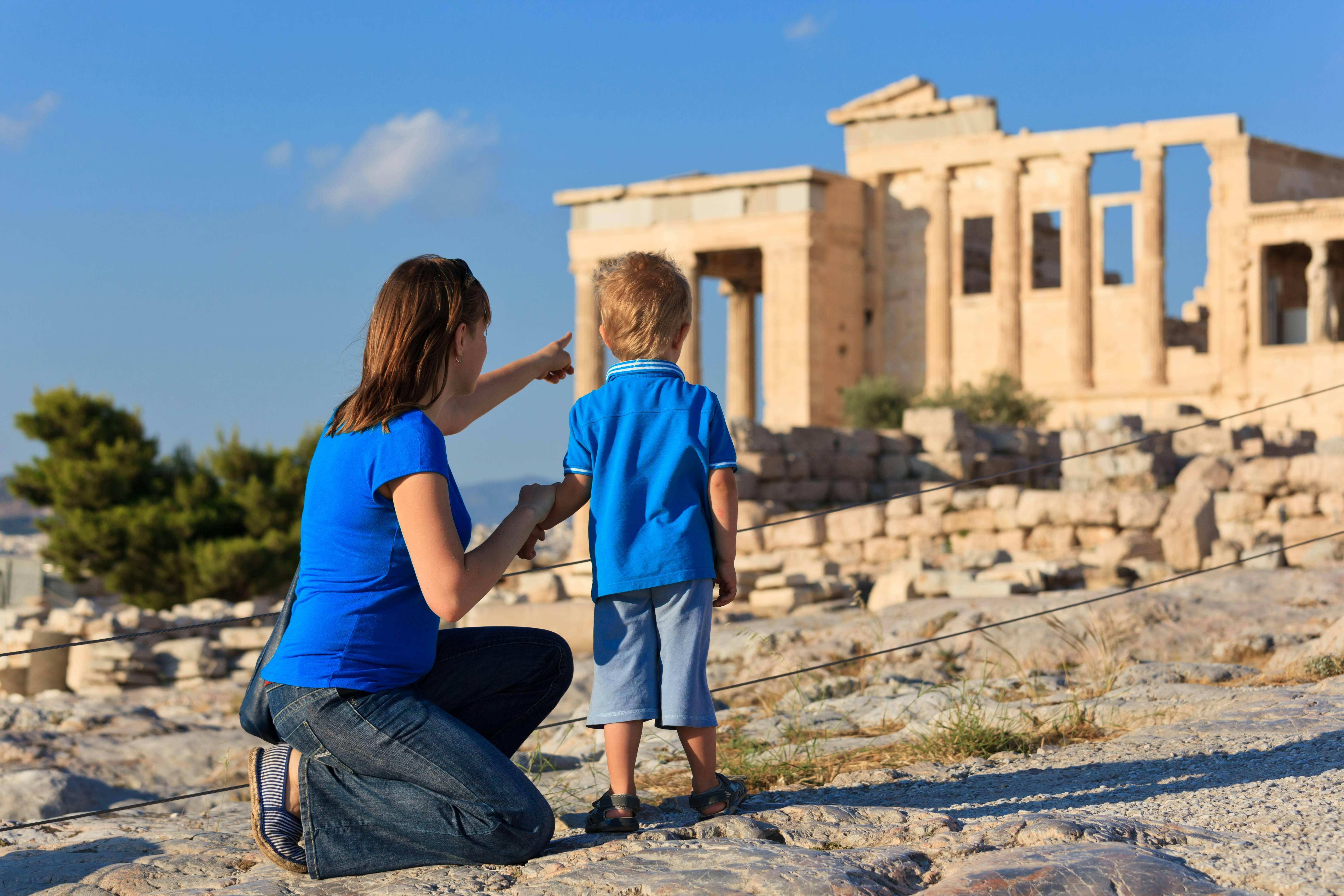
1. Ascend the steps of the Acropolis to the Parthenon
The greatest symbol of the glory of Ancient Greece, the Acropolis rises spectacularly in the center of Athens. In the reign of Pericles, in the 5th century BCE, the hilltop was deemed a religious sanctuary.
Just as pilgrims of millennia past made their way to worship here, you can ascend the marble steps on the west side to find yourself dwarfed by the towering columns of the magnificent Parthenon.
Detour: Complete your experience by seeing a concert or play at the Odeon of Herodes Atticus.
2. Gaze over the city from Filopappou Hill at sunset
The mythical battleground of Theseus and the Amazons is one of Athens' best parks, studded with small ruins connected by beautiful stone paths that are themselves a minor architectural marvel. Make time in your schedule to come here around sundown one evening to watch the lights on the Acropolis switch on and glow gold against the blue sky.
Detour: To the north, the Hill of the Pnyx offers equally compelling views and is almost always empty.
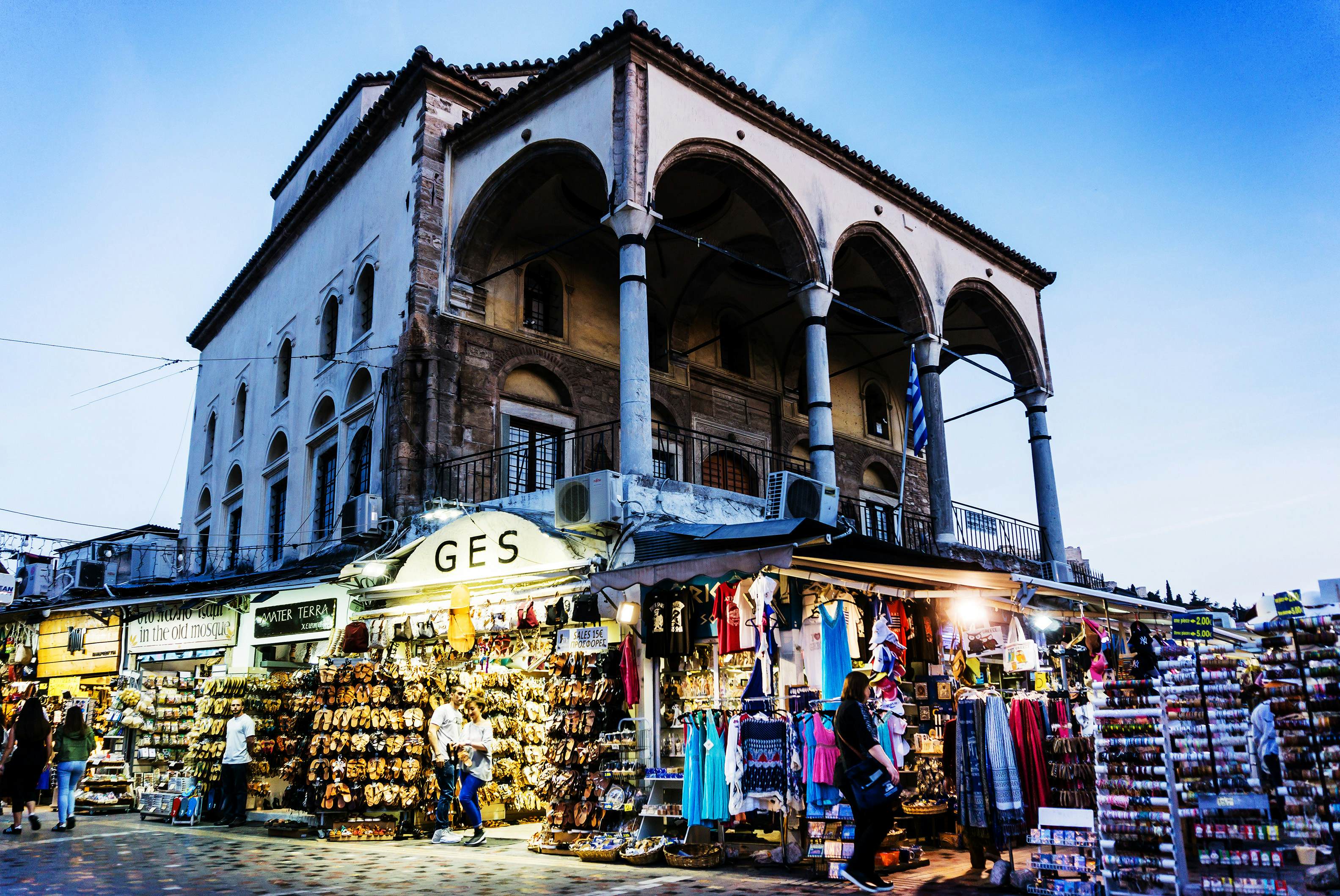
3. Shop at Monastiraki Flea Market
On Saturdays, central Athens throngs with shoppers looking for a bargain at the huge Monastiraki Flea Market, which takes place between the Monastiraki and Thisseio neighborhoods.
Here, traders open up their secondhand stores to flog a jumble of flea-market finds, vintage clothing and oddities ranging from vintage magazines punctuated with bold Greek lettering to mid-century furniture and strange bric-a-brac. Look hard enough, and you’ll find some buried treasure (and if not, some insight into how modern Greeks have furnished their homes for the past 60 years).
4. See the birthplace of democracy in ancient Agora
Follow in the footsteps of Socrates and his various political and philosophical cohorts at the Agora, the heart of ancient Athens' civic life and the birthplace of democracy. In the stately Stoa of Attalos (an architectural paradigm for shopping arcades that you'll recognize across modern Athens), the Agora Museum displays unusual finds from ancient daily life.
The Temple of Hephaistos is exquisite and very well preserved; see how many of the Labors of Hercules you can identify on the frieze.
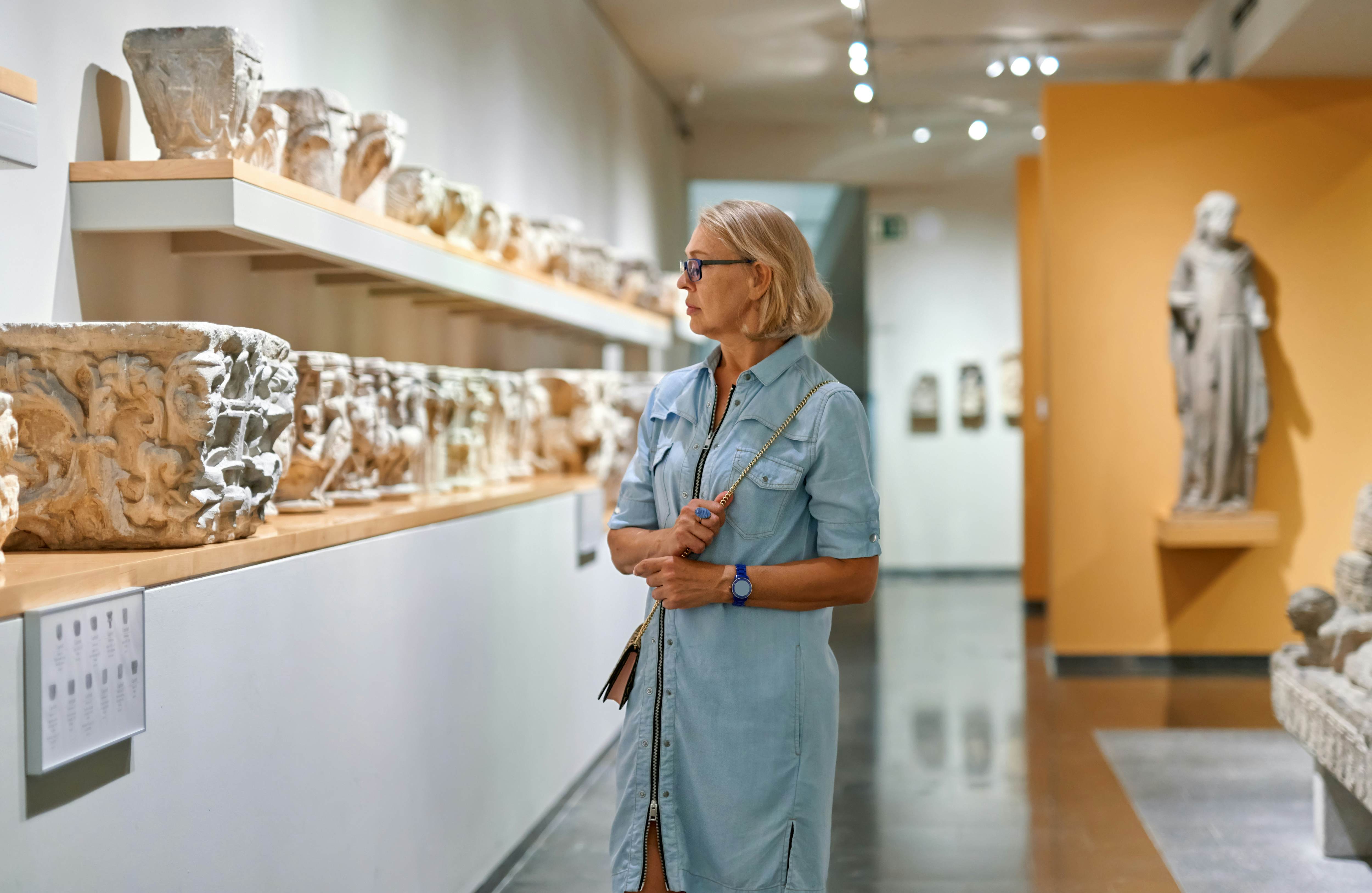
5. Journey through history at the National Archaeological Museum
Athens' preeminent museum houses the world’s largest and finest collection of Greek antiquities. Priceless items date from the Neolithic Era (6800 BCE) to the Cycladic, Mycenaean and Classical periods.
It's gratifying to discover iconic sculptures of Western art history here, like the bronze figure of a bearded god and the disputed hammered gold death mask of Agamemnon, as you stroll through the galleries. Other surprises await, including frescoes from Santorini upstairs.
6. See a show at the Stavros Niarchos Foundation Cultural Center
A contemporary Athenian wonder, the Stavros Niarchos Foundation Cultural Center, designed by Renzo Piano, is home to both the Greek National Opera and the main branch of the National Library.
Seeing a performance here will be a highlight of your trip, but there are plenty of free things to see and do as well, including meandering through the stunningly beautiful Stavros Niarchos Park. Designed to showcase Mediterranean flora, the gently sloping gardens are the perfect spot to relax and take in the views and cooling sea breezes.
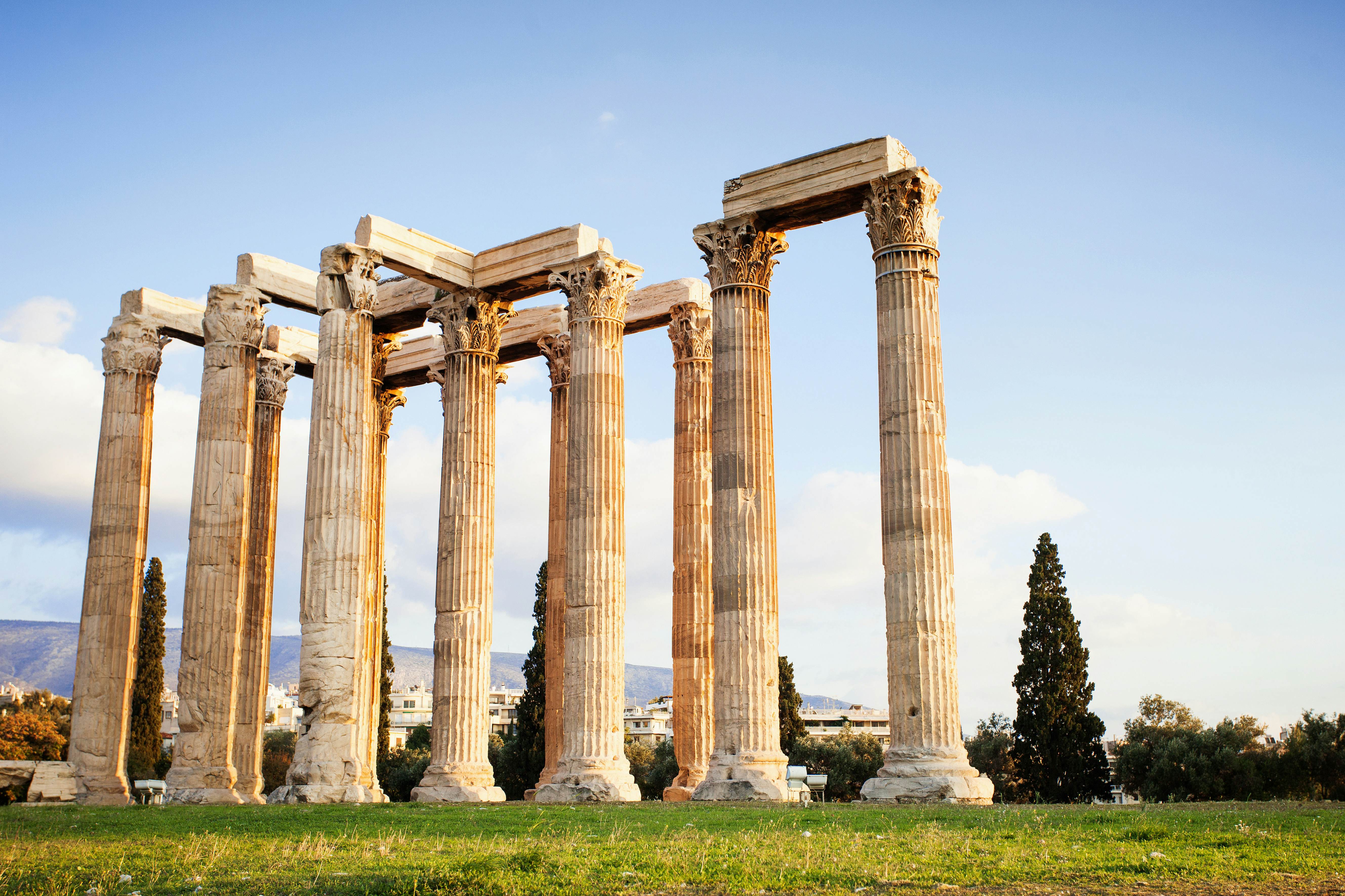
7. Walk among ruins at the Temple of Olympian Zeus
Greece's largest temple was seven centuries in the making. Or rather, what used to be Greece's largest temple - today, only a handful of its colossal columns remain, as the rest were picked apart and reused in other buildings. The temple was dedicated to Zeus and, unofficially, to the Roman emperor Hadrian, who actually finished the construction job and erected a statue of himself.
Planning tip: While you're here, note Hadrian's Arch, congratulating him on his achievement. And explorers can seek out a sanctuary to Pan on the far side of this site.
8. Learn the story of Greece at the Benaki Museum of Greek Culture
If you have time for only one museum, make it this one. This impeccable private collection shows the spectrum of Greece from ancient times right up through the mid-20th century. It occupies a stunning neoclassical mansion, with fine art and mundane folk objects - both equally beautiful - displayed chronologically.
As a kind of counterpoint to the pure classicism celebrated elsewhere in the city's archaeological sites, the Benaki collection tells the story of how Greece has absorbed foreign influences and ideas to create its uniquely syncretic culture.
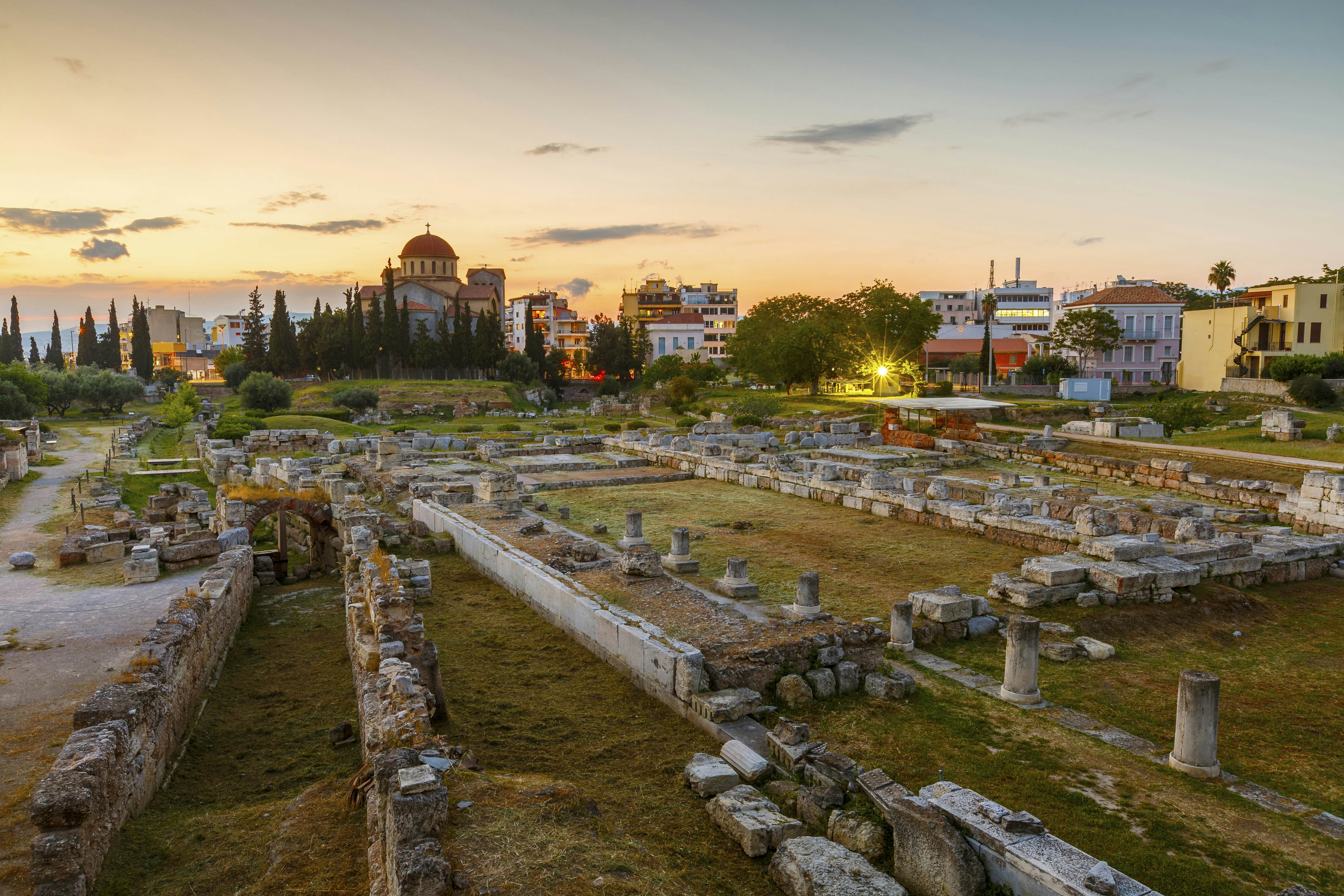
9. Enter ancient Athens at Kerameikos
The city's ancient necropolis is home to the Street of Tombs, where classical VIPs were interred. Many of the finest grave markers are replicas; the originals are on display at the small, absorbing on-site museum.
The area was also the ceremonial entrance into ancient Athens, and while the gates no longer stand and the arriving road is now a paved city street, it's still an interesting place to pause and imagine the activity that would've taken place here.
10. Join in with the local coffee culture
Athenians don't wait until the weekend to head out to catch up with friends; they spend their days under the shade of orange trees nursing coffees and conversing for hours.
By day, the leafy central neighborhoods of Pangrati and Exarhia are packed with locals spilling out from kafeneia (Greek cafes) and into the streets, philosophizing (a favorite activity of any Greek), playing backgammon on marble table tops and sipping slowly on a cuppa.
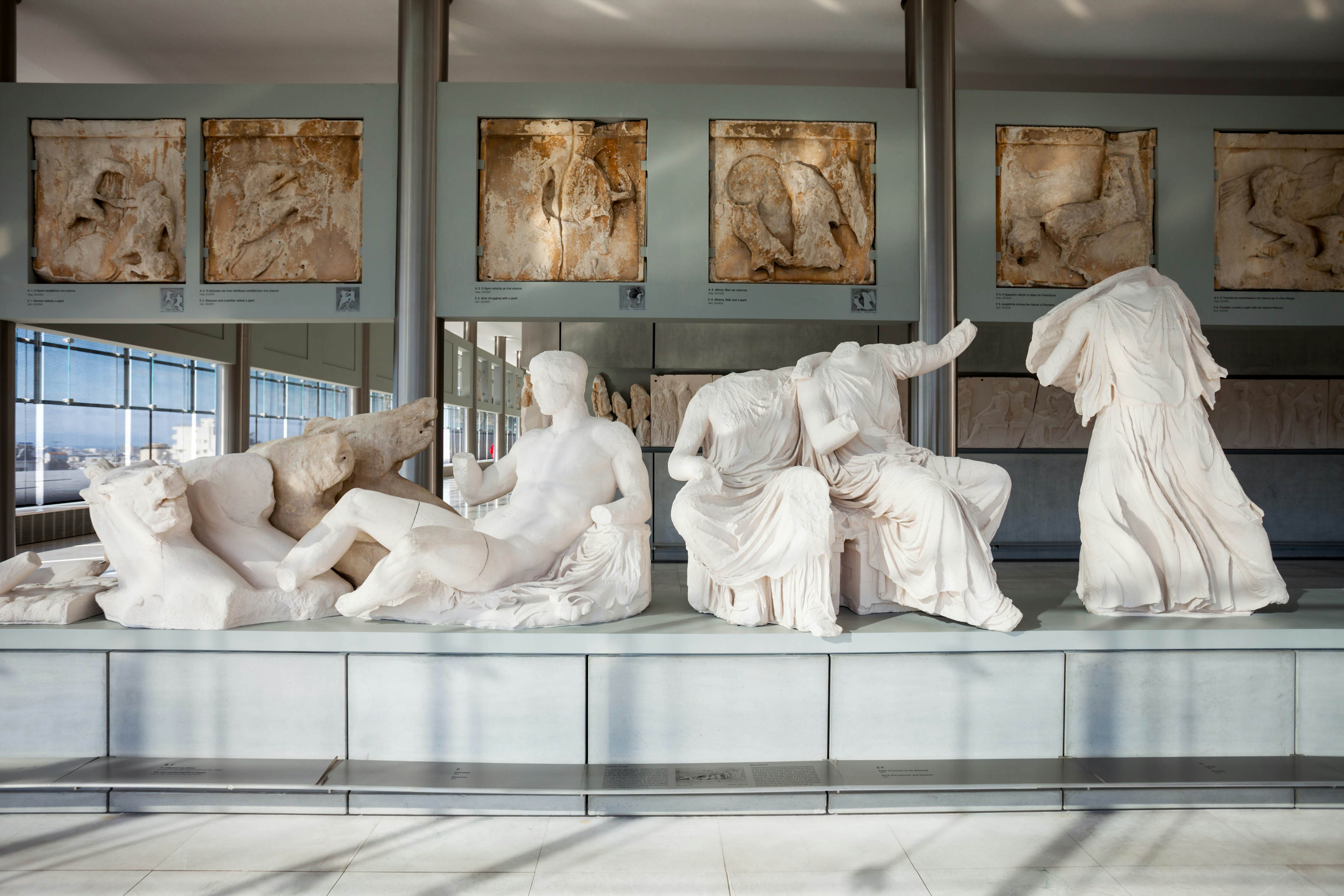
11. Admire treasures in the Acropolis Museum
Natural light cascades through the spacious galleries of the modern Acropolis Museum, illuminating the priceless treasures that have been removed from the hill and installed here for safekeeping.
The pinnacle of the museum is the top-floor glass atrium, where the 161m-long frieze from around the top of the Parthenon (minus the portion still held in the British Museum) is installed at eye level, so visitors can see all the details of this masterpiece in marble, and get a truer sense of its grand scale.
12. Check out the art scene
Athens is getting increasingly well-known for its art scene. From not-for-profit galleries like CheapArt Athens to well-established commercial galleries like The Breeder and the Basil and Elise Goulandris Foundation, and the National Museum of Contemporary Art, which opened in 2020, the city's creative side is thriving.
Add to that a flurry of international artists who have moved to the city and set up spaces like Kypseli Print Studio - a print screening studio that hosts workshops for people of all abilities - and Haus N, a creative hub for new installations and works by young Greek artists, and it's easy to see the landscape changing for the better.
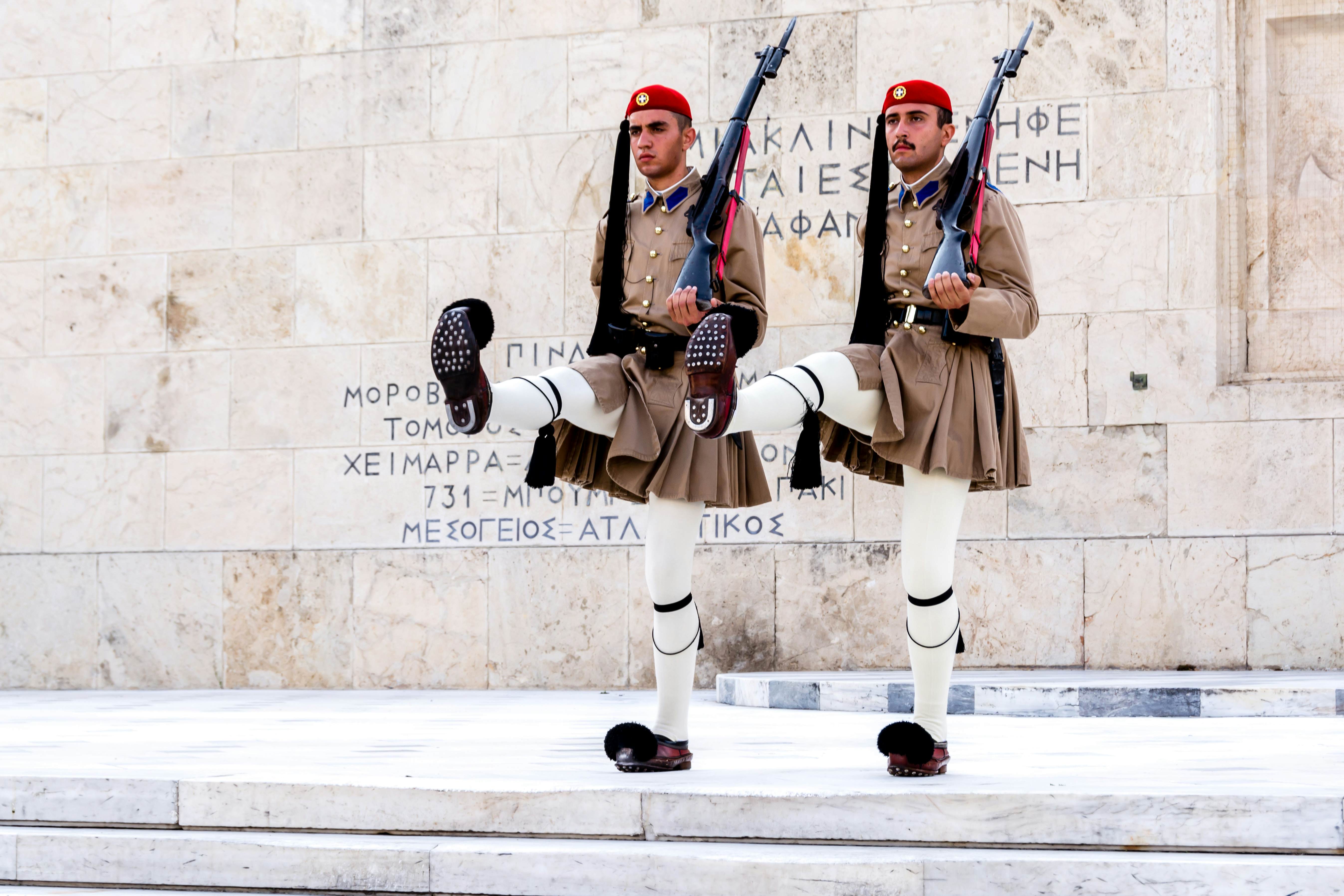
13. Watch the changing of the guard in Syntagma Square
In the very heart of Athens stands the rose-toned Hellenic Parliament building on Syntagma Square. Try and catch its ceremonious changing of the guard. Two guards are always in residence here, dressed in traditional Evzones costume, a tasseled fez hat, thick kilt and stockinged legs with pom-pom shoes.
In summer, the customary get-up gets so hot that these guards have to be dabbed at with tissues, as they are unable to move from their positions protecting the Tomb of the Unknown Soldier. It’s only on the hour that they can finally break free to move in perfectly choreographed synchronicity, kicking their legs high as they march to change guards.
14. Hit the beaches of the Apollo Coast
Escaping the heat of the city is easy in Athens: just head to the beach. In the sweltering summer months, take the A1 tram to the Palaio Faliro neighborhood for a palm tree-lined promenade and a soft, sandy beach.
Further along the Apollo Coast are the more upmarket southern suburbs of Glyfada and Vouliagmeni, with no shortage of luxury beach clubs should you want a full day off from sightseeing. Out of season, Vouliagmeni has a burgeoning surf scene.
Planning tip: If you are willing to travel a little further for some beach time, head to Aegina on a day trip.
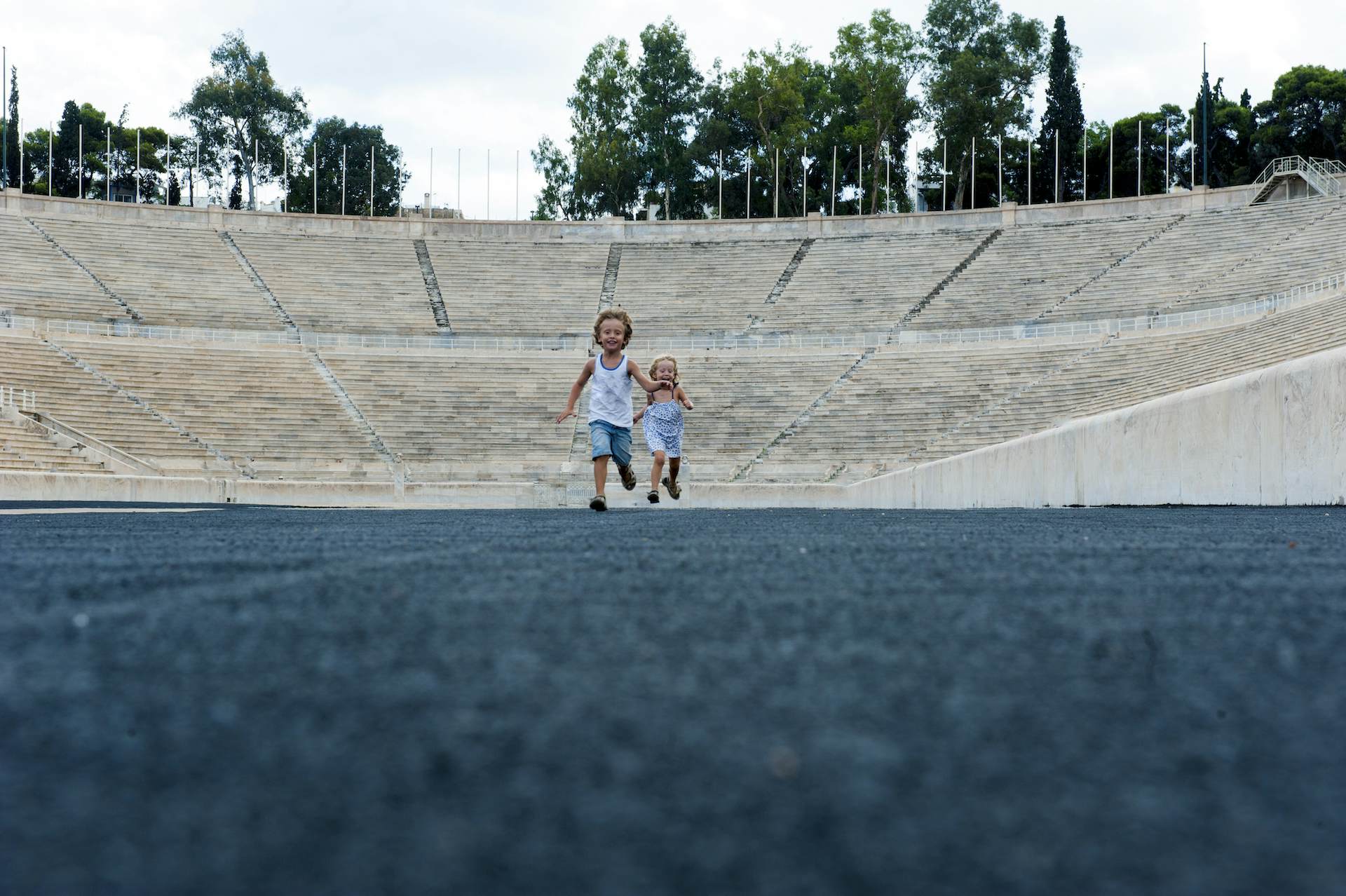
15. Snap a shot on the winner's pedestal at the Panathenaic Stadium
With its rows of white Pentelic marble seats built into a ravine next to Ardettos Hill, this ancient-turned-modern stadium is a draw both for lovers of classical architecture and sports fans who can imagine the roar of the crowds from millennia past. A ticket gets you an audio tour, admission to a tiny exhibit on the modern Olympics (mainly eye-candy games posters) and the opportunity to take your photo on a winners' pedestal.
The stadium - built in the 4th century BCE and restored for the first modern Olympic games in 1896 - was first used as a venue for the Panathenaic athletic contests. It's said that at Hadrian's inauguration in CE 120, a thousand wild animals were sacrificed in the arena. Later, the seats were rebuilt in marble by Herodes Atticus.
16. Visit the miraculous Church of Agios Dimitrios Loumbardiaris
At the foot of Filopappou Hill, this 16th-century church may not be the oldest in Athens, but it is certainly one of the loveliest, with a heavy timber roof, marble floors and the permanent scent of incense. A great 1732 fresco of St Dimitrios, astride his horse in a pose copied from ancient images of Alexander the Great, adorns the interior.
The churchyard, with its wooden gate and bells, conjures Japan - a touch by modernist architect Dimitris Pikionis, who also applied his precise style to the restoration of the back exterior wall, a delightful piece of stonework. In 1648, the church was the site of a reported miracle. The Turks, ensconced on the Acropolis, prepared to fire a cannon on worshippers gathered in the church, but the gunner was killed by lightning, saving the congregation, hence its name, Loumbardiaris ("of the cannon").


